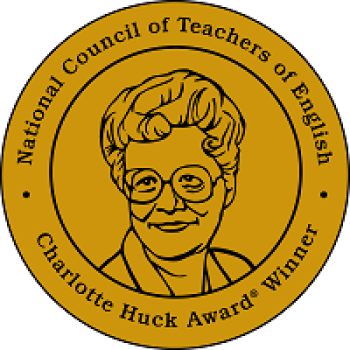The Charlotte Huck Award for Outstanding Fiction for Children is announced today.

Event Description
The NCTE Charlotte Huck Award® for Outstanding Fiction for Children honors the work of educator Charlotte Huck, who championed the classroom use of storybooks to teach reading and language arts. The award was established in 2014 to promote and recognize excellence in the writing of fiction for children that invites compassion, imagination, and wonder.
Classroom Activity
After sharing one or more of the winning, honored, or recommended titles as a classroom read-aloud, invite students write and illustrate their own story in which someone learned how to be more compassionate or to feel empathy for those who are different from themselves.
Allow students to decide to tell a story from their own lives or to create characters and imagined situations that would inspire others to be more compassionate. Share tools such as the Story Map and Cube Creator to help students plan and generate ideas. Arrange for a time for students to share their stories with classmates or with younger students.
Websites
This festival, hosted by the University of Redlands, brings together authors and illustrators of children’s literature with teachers, librarians, and families.
Charlotte Huck’s HarperCollins biography page includes a link to her book Princess Furball, illustrated by Anita Lobel.
NCTE’s page for its children’s book awards, also including the NCTE Orbis Pictus Award® for Outstanding Nonfiction for Children.